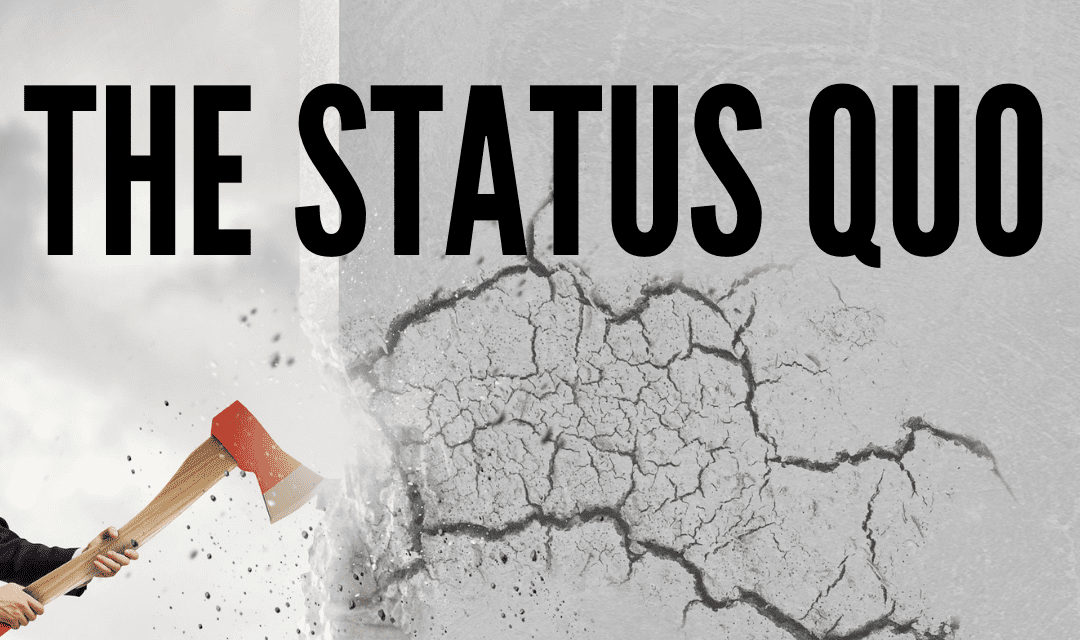New Zealand’s big financial institutions are highly profitable and deeply dysfunctional, according to Simplicity CEO, Sam Stubbs. So why are banks charging so darn much on their floating mortgages? Is there any saving the much maligned NZX or is it living on borrowed time? And are team New Zealand the ultimate metaphor for our aspirational economy? We answer all of these questions, and more.
Floating mortgages
Known as floating mortgages, or variable rate loans, have crept back into focus recently as another example of bank excess. A small premium to pay for extra flexibility is a reasonable thing to expect – but currently floating rates around twice as much as the shorter term fixed rate loans.
The loans work on the most flexible of all criteria, the rate is‘floating’ up or down, according to the state of market interest rates. Importantly, people are able to pay the loans back as soon as they’d like, meaning they won’t be stung with penalty for getting out before the term of the repayments. You could even say that providing the cost was the same as fixed rates, and provided interest rate expectations where that they’d be lower for longer (like it is right now), then the floating rate is the best choice for many.
Unfortunately for consumers, these floating mortgages have become an incredible money maker for the big banks with floating rate profit margins hitting the highest in 19 years. Looking a little deeper and it’s easy to see why. Interest rates are tied to the market rate in only the vaguest of ways. Currently banks are charging 3.15 per cent to 4.35 per cent over the OCR rate of 0.25 per cent. Now of course there’s more to the revenue model than this, but you’re starting to see the picture.
“In theory, a floating rate should be cheaper. There’s no compelling reason why it should be more expensive,” said Stubbs.
In response to this, Simplicity has created the nation’s cheapest floating mortgage by a country mile.
Their mortgage [currently] has a floating rate of 2.25 per cent, more than halving most of the available bank loans in the space.
To arrive at this impressive new lending rate, Simplicity introduced a straightforward relationship between two mutually interested parties; Their KiwiSaver investors looking for return on their savings, and property buyers looking for capital to fund the purchase of their first home.
It’s something Stubbs reckons the banks could make happen easily, but they’re hamstrung by their own special interests.
“The borrower pays less, the investor gets more. Who gets less is the bank, the intermediary,” said Stubbs.
In many ways, Stubbs’ undermining of the banks around floating mortgages is a precursor to further destruction down the line. I suspect Simplicity is an analogue version of what ultimately will come through decentralised finance (see ‘Tokenised” peer-to-peer lending). Banks until now have survived off of pure dominance and inertia. There’s a very strong argument that on many of their services; from lending, to spending, to sending money overseas, there are other quicker companies that can do it better.
It’s an age old story of an industry failing to adapt. something we’ve seen in an incredible way through the year with our national stock exchange.
So what is going wrong with the NZX?
In a perfect world, the New Zealand Stock Exchange would be the host for all of New Zealand’s greatest, most exciting companies. A place for people to buy a slice of Xero, a pinch of Fonterra, and little of all of them through an ETF or your KiwiSaver fund.
In reality, as Sam puts it, it’s become a dead man walking.
As the host for all of New Zealand’s top companies to go public, the exchange should be a farmers market where the fund managers show up on the weekend with their tote bag and a pocket full of cash.
In reality, it’s become more like a supermarket looking to cut in on the suppliers with their own ‘Signature Range’ of managed funds. Fund managers like Simplicity are forced to compete with the NZX itself as it introduces white labelled bags of self raising flour in the form of index funds, which they then put to the top of the pile.
Amidst high profile divestments like we saw with Xero, cybersecurity failings as we watched all last year, and a recent damning report from the FMA — things aren’t looking rosey for our local farmer’s market.
Are the odds stacked against us?
Hearing us babble on about overly dominant greedy banks and a self interested stock exchange, you might think that it’s all doom and gloom from here on out. But like we see with Team New Zealand, we’ve always had the odds stacked against us.
Team New Zealand has a fraction of the budget of our competitors and a tiny little population to draw from, but somehow every America’s Cup we show up with the quickest boat and the savviest group of sailors.
Similarly, our financial sector may suffer from some distinct failings, but we can rely on the resourceful innovation of our people to still overperform. Yes, our major financial institutions will continue to hold strong for the foreseeable future, but they’re drinking margaritas in a sunset industry all the while missing those important texts from the babysitter.
Smaller, smarter companies will find ways to do things better for consumers, like we’ve seen with Simplicity’s floating mortgages, and ultimately that’s the future we’re going to see.
The harsh reality of the free-market is that sometimes, the status quo get’s taken down – when this occurs, the disturbance can be massive. The really concerning thing about some of our institutions, is that change is that change is being resisted – when you’re already a dead man walking, if the writing’s on the wall, resistance is not only futile, but it could amplify the mess to come.
___________________________________________________________
Like what you’ve heard?
You can really help with the success of the NZ Everyday Investor by doing the following:
1- Tell your friends!
2- Write a review on Facebook, or your favourite podcast player
3- Help support the mission of our show on Patreon by contributing here
4- To catch the live episodes, please ensure you have subscribed to us on Youtube:
5- Sign up to our newsletter here
NZ Everyday Investor is on a mission to increase financial literacy and make investing more accessible for the everyday person!
Please ensure that you act independently from any of the content provided in these episodes – it should not be considered personalised financial advice for you. This means, you should either do your own research taking on board a broad range of opinions, or ideally, consult and engage an authorised financial adviser to provide guidance around your specific goals and objectives.
_____________________________________________________________________________




